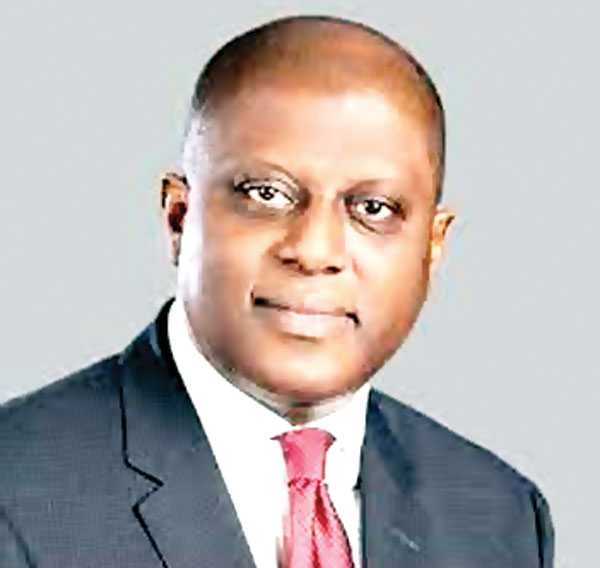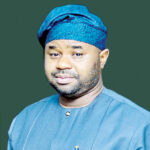A herd of economic and finance experts from Afrinvest (West) Africa Limited and the Financial Derivatives Company Limited have given reasons the Central Bank of Nigeria (CBN) governor’s position and projections of a turning point in economic experience (though not unfounded) could be premature.
Analysts from the Lagos-based Afrinvest believe that given the static progress of some of the key enablers to the ongoing fiscal and monetary policy reform moves and growing external risks, the expectations might not be realised soon.
It will be recalled that the CBN governor, Mr Olayemi Cardoso, during his keynote address at the launch of the 2024 Macroeconomic Outlook report by the Nigerian Economic Summit Group (NESG), last week, raised salient issues on the economy.
The CBN governor holds that Nigeria is now at a turning point and that bold reforms currently being undertaken across different segments would address the targeted challenges in a sustainable manner.
Cardoso, among others, supported the Federal Government’s 2024 growth projection of 3.76 percent, underpinned by expectations of positive gains from increased crude oil production.
In addition, he asserts that pump prices of Premium Motor Spirit (PMS) would moderate in no distant period due to the expected operational status of the country’s key government and privately owned refineries.
Cardoso also anticipates the FX market to stabilise in 2024, supported by the reduction in petroleum product imports, the upholding of market reflective exchange rate regime, the channeling of all FX inflows of NNPCL to the Central Bank and the offsetting of all valid FX backlog which should restore confidence in the financial system.
However, in a report titled, ‘Domestic Macroeconomy: Is Nigeria Yet at Turning Point?’ analysts from Afrinvest (West) Africa Limited flagged that adequate measures have not been set in motion to support key activities such as crude oil production, agriculture output and the business environment to help push Gross Domestic Product (GDP) growth higher to 3.76 percent from an estimated 2.74 percent in 2023.
It said, “Furthermore, we are of the view that Mr Cardoso’s assertion that PMS pump prices would moderate due to the expected operational status of the country’s key government and privately owned refineries vis-à-vis the elevated crude oil price projection for 2024 (average projection: $70.00/bbl – $85.0/bbl) may be tantamount to ‘building a castle in the air’ except subsidy payment by FG is fully returned/increased.”
Other areas of concern, according to the analysts, are that although the new CBN management has scheduled its first Monetary Policy Committee (MPC) meeting for February, the statutory committee to pursue the meeting (as stipulated in the 2007 CBN Act) is yet to be fully constituted.
“While we share the view on the likely moderation of the average inflation rate (due largely to the high base effect), we hold that the CBN’s average projection of 21.4 percent may not crystalise should insecurity concerns in agrarian belts and aggressive exchange rate pressure persist throughout H1:2024.
“Hence, we maintain our 2024 macroeconomic prognosis that Nigeria’s economic outcomes in 2024 would depend on the actions or inactions of the fiscal and monetary authorities to push through their reform agenda,” the analysts stated.
Similarly, in their own submissions, analysts from Financial Derivatives Company (FDC) Limited said Nigeria’s reform momentum appears to be at a standstill. Whilst there is a possibility of the reforms being reignited, there are doubts as to the commitment and political will of the decision-makers.
In a separate report titled, ‘Stalled reforms, ideological backsliding and the policy dilemma,’ the FDC think-tank said Nigerian policymakers seem stuck between a rock and a hard place.
It said on one hand, the CBN is committed to explicit inflation targeting as a tool for achieving price stability, on the other hand, the fiscal authorities are at best ambivalent when it comes to the question of using interest rates as a tool for combating inflation.
The analysts believe that with the agricultural sector’s declining growth coexisting with rapid population growth (2.5 percent), Nigeria’s food insecurity woes are set to escalate.
This underscores the need for immediate intervention to address the lingering structural challenges like inadequate seedlings, fertilisers and poor storage facilities impeding the agricultural sector’s productivity.
The health of the Nigerian economy is closely tied to the total value of goods and services produced in the country. The analysts observed that attention the sector should be a priority.
“Given the vital role played by agriculture in its contribution to GDP (24.66 percent in 9M’23), particularly in terms of both output and employment, the significance of transforming the sector cannot be overstated.
“This is because the sector, which was once the cornerstone of the economy, has witnessed a decline in its GDP growth rate, dropping from 5.8 percent in 2010 to 0.63 percent in the nine months leading up to September 2023,” the FDC analysts stated.
Drawing inspiration from successful models in neighbouring countries like the Benin Republic (rated as one of the fastest growing economies in Africa), whose growth is mainly driven by its agricultural sector, a window of opportunity has reappeared for implementing strategic initiatives to revive the sector.
According to the FDC, the CBN appears to put managing the value of the naira in the forex market as a top priority, followed closely by managing the general level of prices in the economy. This is because some policymakers believe that the major cause of higher prices is the pass-through effect of the exchange rate on domestic prices.






